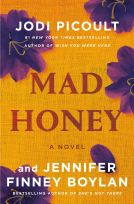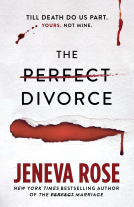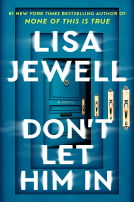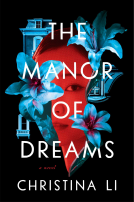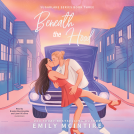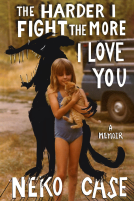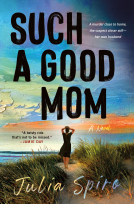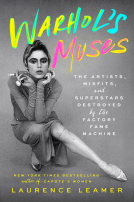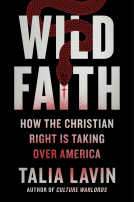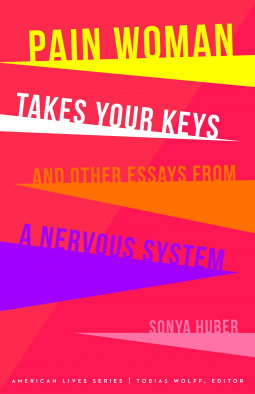
Pain Woman Takes Your Keys, and Other Essays from a Nervous System
by Sonya Huber
This title was previously available on NetGalley and is now archived.
Send NetGalley books directly to your Kindle or Kindle app
1
To read on a Kindle or Kindle app, please add kindle@netgalley.com as an approved email address to receive files in your Amazon account. Click here for step-by-step instructions.
2
Also find your Kindle email address within your Amazon account, and enter it here.
Pub Date Mar 01 2017 | Archive Date Mar 31 2017
Description
Huber addresses the nature and experience of invisible disability, including the challenges of gender bias in our health care system, the search for effective treatment options, and the difficulty of articulating chronic pain. She makes pain a lens of inquiry and lyricism, finds its humor and complexity, describes its irascible character, and explores its temperature, taste, and even its beauty.
Advance Praise
“This is an important book, a necessary book, a book that, in the right hands, could change how our medical establishment deals with pain. These essays are at once vulnerable and fierce, funny and smart, unflinching and dappled with stunning metaphor.”—Gayle Brandeis, author of Fruitflesh
“Huber has captured what it is to be a woman who lives with chronic pain in all its nuanced complexity.”—Sarah Einstein, author of Mot: A Memoir
Available Editions
| EDITION | Other Format |
| ISBN | 9780803299917 |
| PRICE | $17.95 (USD) |
| PAGES | 204 |
Links
Featured Reviews
As someone that suffers from chronic pain I found this book to be helpful and easy to connect with. I think there is a stigma to people that have an invisible illness like pain and books like this, with people expressing what they are going through and how they have to deal with this on an every day basis are very helpful and important. More people need to understand that invisible illness is a real thing even though it cannot be seen through a microscope or perceived with the naked eye. I could identify so much with many of the stories throughout this book. I will be reading this again and recommending this on my channel when it gets a little closer to publication date as I have many subscribers that also suffer from chronic illness and I think reading a book like this will help to give them some comfort to know that they are not alone. I know it did for me.
 Reviewer 362948
Reviewer 362948
I initially decided to pick this one up because I read a great review on Bitch Media by Gila Lyons (https://bitchmedia.org/article/pain-woman-takes-your-keys-review-sonya-huber-chronic-pain) & I was instantly captivated by the cover - I loved the bright colours & how the triangles made a pattern on the page.
I'm not sure what exactly I expecting going into this book as I knew basically nothing about chronic pain, but I absolutely loved reading this & probably took a bit longer than usual to finish it because I didn't want it to be over. This isn't a feel good book - though it did make me pause & think about appreciating my young & able body while I can because I won't always have it - but I loved Sonya Huber's voice & the way she chronicles her life with pain & her discussion on pain itself.
I highlighted so many passages while reading this & I feel like I need to go over my favourite parts again [the first entry, "What Pain Wants" is one I can see myself coming back to over & over again] because there is so many things that I loved about this book that should be highlighted, but because I never make it to the end of long reviews, I am going to end it here by simply saying this is one of the best nonfiction books on a subject that I don't know much about that I have read in a long time, & if this sounds like something you would like then you should go read it immediately.
I would recommend this to those who are looking for a book dealing with health issues/chronic pain but I also think this would appeal to a wider audience of those who enjoy reading memoir like books / essay collections of other peoples lives as well.
 Hannah S, Reviewer
Hannah S, Reviewer
This is one of those books whose title immediately grabed me - I mean, it is just super brilliant. And lenghty parts of this collection of essays are brilliant as well. Sonya Huber writes about her struggle with chronic pain; she has an auto-immune disease that changed everything about her life. As somebody who also struggles with pain on a regular basis I could relate so much to the way she talks about her pain. She is impressively eloquent and has a brilliant way with metaphors. The parts where she directly addresses her anthropomorphized pain were absolutely stunning and illuminating. Here she really shines and these parts I adored.
I also appreciate the honesty with which she approaches her life and her pain and her limitations thats result from that pain; we need voices who are honest before everything and who show that there are different ways of living ones life without being patronizing.
But while I really appreciated parts of this book, overall there were issues for me. You can definitely tell that the essays were written and published seperately before; Sonya Huber repeats things a lot and the repetitiveness of this work did not always work for me. Even within the essays themselves, her style is mostly disjointed - this type of literary non-fiction is difficult to pull of. Oftentimes she excels but sometimes it fell flat for me and the non-sequitors made following her train of thought difficult. I think I would have appreciated this a lot more if the whole book had been one overarching essay - then the repetitiveness and the circularity of some of her arguments could have worked beautifully.
___
I received an arc of this book curtesy of NetGalley and University of Nebraska Press in exchange for an honest review. Thanks for that!
I knew from the opening lines of the first essay, Pain Bows in Greeting, that I would like this collection.
"Pain wants you to put in earplugs because sounds are grating. Pain has something urgent to tell you but forgets over and over again what it was.
Pain tells you to put your laptop in the refrigerator.
Pain runs into walls at forty-five-degree angels and ricochets back into the center of the room."
The essays range widely from the near poetry of the above to magazine-type explorations of what it means to live with pain. Some spin out metaphors.
"Pain twists me like the ends of a Halls cough drop wrapper. A few cunning turns transform a flat square of wax paper into a neat home for a lozenge. If I do not unroll pain, I carry it."
All are fascinating. Huber tells us what it's like to watch your body slowly decline, to mourn the healthy body you've left behind, to try and explain and quantify your pain in just the right way to doctors and specialists. You're frustrated in reducing your pain to a number on a ten point scale. You underestimate it so you're not labeled as a drug seeker. When yet another person suggests that doing yoga would help, you read "the implication: if you tried harder, you could fix it."
It's a window into life with pain that I'm grateful to have. As a medical interpreter I feel better armed to assist patients who are in chronic pain themselves. I also feel like I have the tools to be a better human. A theme that has come up in my reading this year is that when someone tells you their story, listen. Believe them. Huber gives you no other choice.
I like some essays more than others, but it's still an easy recommend to anyone who works with or knows someone in chronic pain, or just wants a beautifully written peek into that world.
Readers who liked this book also liked:
Jodi Picoult; Jennifer Finney Boylan
General Fiction (Adult), Literary Fiction, Women's Fiction
